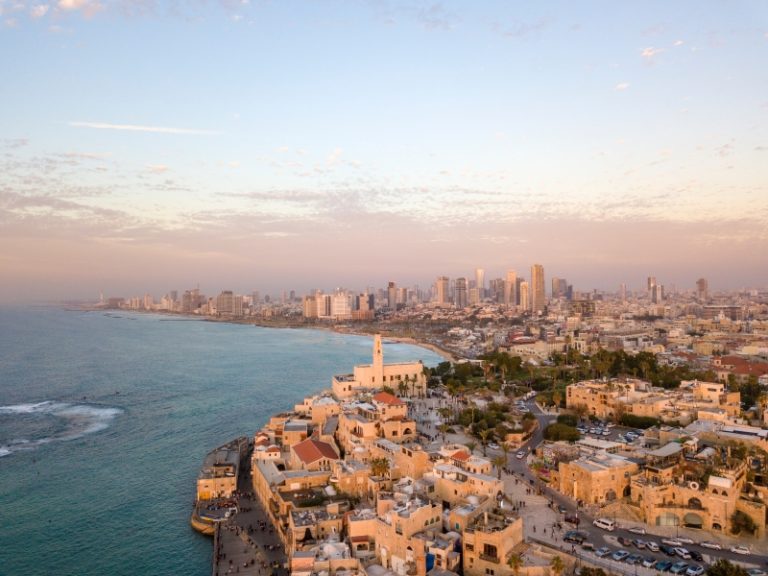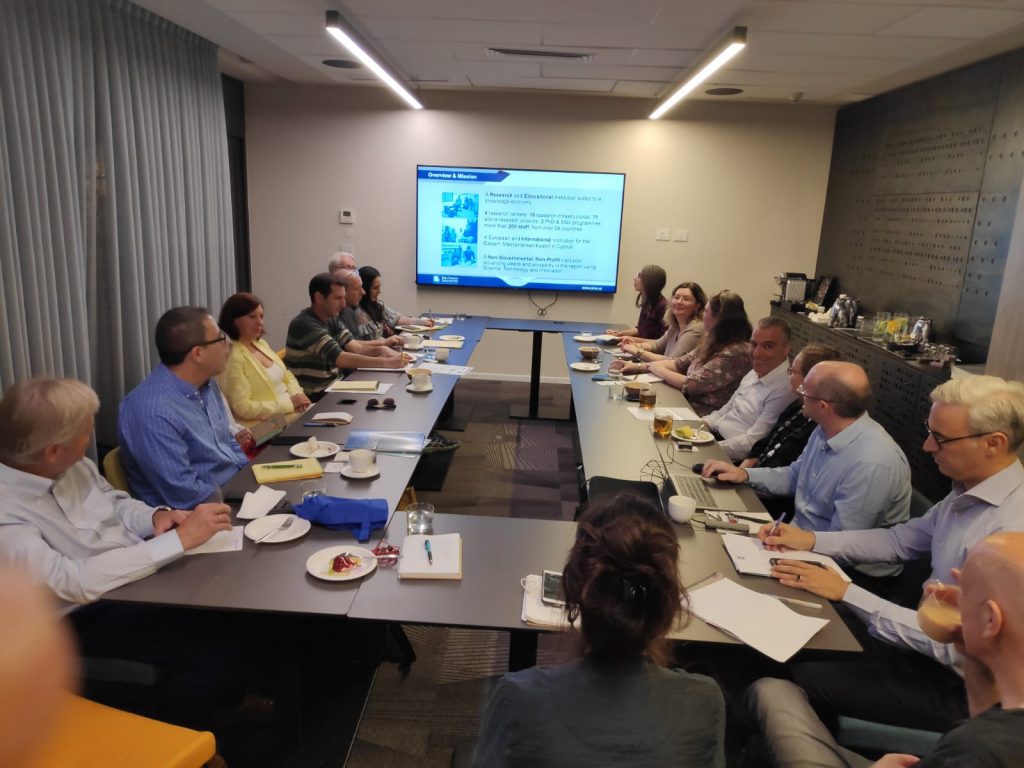Regional Climate Action Hub
for the Eastern Mediterranean Basin
The climate crisis thus presents us with a complex picture – with many possibilities and risks. The practical implication is that all national development plans must take into account local and regional climate change implications and act accordingly: strengthen local economy, create livelihoods for the younger generation, conserve and rehabilitate water sources and access to drinking water and energy, develop sustainable agriculture and renewable energy. All of these provide the base for developing local and regional resilience and community resilience. Regional cooperation can improve the chances of success and maintain regional stability.

At the regional level of the Middle East, these trends have the potential for accelerating waves of mass migration and destabilizing regimes. Geopolitical effects of climate change are already evident in Asia and Africa, thus helping Islamic terrorist organizations increase their power in weak areas.
In Israel, studies indicate a trend of reduction in precipitation and an increase in demand for water. Events of more frequent extreme weather (floods, droughts, storms) are expected. Increases in morbidity are expected due to heat waves, rising sea levels, risk of forest fires and damage to biodiversity. Another significant impact is the effect of climate change on agriculture of declining crop yields, which may increase food insecurity and hunger in underprivileged populations.
But there is also good news: in recent years we have witnessed a worldwide awakening to action – with unprecedented responses from governments, civil society, cities, businesses and industry to tackle the challenge of the climate crisis. All over the world, courage and creativity are being mobilized to bring about a policy change in the transition to a carbon-neutral economy and to increasing community resilience in order to adapt to accelerated changes in our environment.
Recently, Israel has also followed in the footsteps of OECD countries and formulated a strategic plan for preparing for climate change. The Israel 2050 multi-sectoral process is underway and is almost concluded, being led by the Ministry for Environmental Protection.
If fully implemented, it would represent a real revolution in all areas of life: changing the energy system, the economy, water, agriculture, food, construction, transportation, urban planning, and more.
The climate crisis opens up new possibilities in the economic and technological field. It is also an opportunity to leverage Israeli creativity in the development of innovative technologies in the field of water, energy and agriculture while reducing social disparities.
The Climate Crisis: A Regional Perspective
The climate urgency does not have borders – there is no single country that can offer all the solutions, or solve it on its own. In a world of growing interdependence, transboundary threats are increasing due to the climate crisis. The lack of water in Gaza and Jordan, or the decline in food crops in Egypt, pose a danger to Israel’s national security as well.
Alongside this, many opportunities are created for cooperation, for sharing expertise and exchange of ideas in the adoption of solutions that can strengthen stability and expand prosperity of the whole region. Thus, for example, issues like dealing with drought, expanding water agreements, sharing energy sources can all find an optimal solution by establishing cross-border cooperation.
Another example is the proposal of the Water and Energy Nexus project, which proposes increasing sustainability and security of water and energy through cooperation between Israel and Jordan.
The climate crisis thus presents us with a complex picture – with many possibilities and risks. The practical implication is that all national development plans must take into account local and regional climate change implications and act accordingly: strengthen local economy, create livelihoods for the younger generation, conserve and rehabilitate water sources and access to drinking water and energy, develop sustainable agriculture and renewable energy. All of these provide the base for developing local and regional resilience and community resilience. Regional cooperation can improve the chances of success and maintain regional stability.
The Regional Climate Action Hub Initiative
On August 4th, 2019, our proposal to initiate a regional collaboration to coordinate a response to climate change with our partner, the Cyprus Institute in Nicosia, was approved. Representatives of the staff of the Heschel Center joined forces with Nicolas Jarruad, executive vice-president for international relations of the CI, and Prof. Manfred Lange, of FEMRC Future Earth MENA Regional Center there, who have had significant experience in regional environmental collaborations.

The purpose of the initiative is to create a platform for international collaborations around climate change adaptation and mitigation, based on the trilateral agreement between Israel, Greece and Cyprus. So far, together with our partners at the Cyprus Institute, we have organized and hosted two events: the first in Tel Aviv, in November of last year, with representatives of embassies of the East Mediterranean Sea countries, followed by a two-day seminar in Cyprus in December with representatives from Turkey, Greece, Jordan, the Palestinian Authority and Gaza. These events have included not only significant representation from Israeli organizations such as the Arava Institute for Environmental Studies, Ecopeace, and the Mitvim Institute for Regional Foreing Policies, it also received the backing of relevant government bodies – the Ministry of the Environment, and the Foreing Ministry, as well as the President of Cyprus, and the Cypriot diplomatic corps.
The gatherings led to several outcomes. One was the Eastern Mediterranean Middle East – Eastern Mediterranean Climate Hub (EMME-EMCH) concept note which outlines the vision, objectives, structure, stakeholders and deliverables of the project. Another was a structure of working groups, of representatives of six regional partners: a steering committee, a communications committee and a mapping committee.
Among the topics that have been slated to be addressed are the following:
- Network platform for regional SDSN framework for sharing solutions and knowledge
- Climate science and research in the region, scenario planning and policy recommendations
- Participatory civil society processes for decarbonization and mitigation for 2050
- Urban innovation and Renewable Energy technology
- Water Technology and other environmental/ socio-economic innovations
- Education for Climate Change
- The Regional Climate Conference
- The Cyprus Government Climate Initiative
This project is on hold until both the health and national budgetary situations stabilize.
